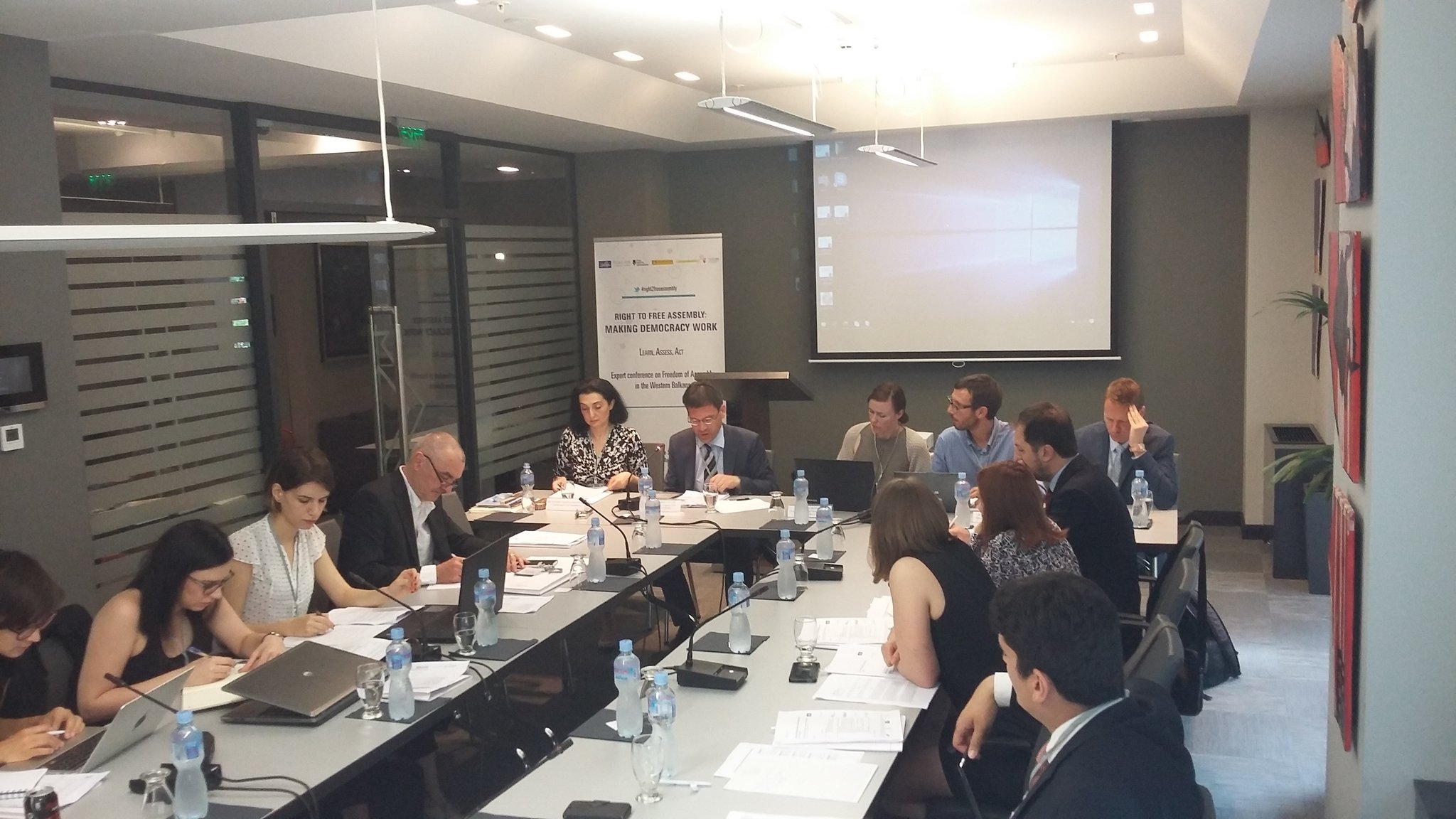In recent years, countries in the Western Balkan region have experienced significant setbacks in the area of freedom of assembly (FOA). During its work in the region, ECNL and partners have found that there is a lack of awareness and understanding of the legal framework, related international standards and continuous monitoring of their implementation. Moreover, political turmoil in the countries of the region produced numerous and contested assemblies, with massive civic response on one hand and unanswered questions about their management, consequences for participants of assemblies and appropriate implementation.
Prepared as part of our pilot research, the country reports
- assess the level of compliance of the national legislation on FOA with the relevant international and regional standards,
- map the institutions for implementation,
- identify the main challenges and specific issues that arise from the implementation, and
- provide a set of recommendations to relevant stakeholders on how to advance the protection of the FOA in each country.
We based the research on the relevant international and regional standards, including especially the OSCE/ODIHR & Venice Commission Guidelines on Freedom of Peaceful Assembly and the Joint report of the UN Special Rapporteurs on the proper management of assemblies.
Key findings:
Comparatively, the research shows that the five countries have not fulfilled their duty to protect and enable FOA. This is due to (1) lacking adequate legal protections on some specifics of the FOA, or (2) impeding on the right through the implementation in practice.
In most countries FOA framework includes ambiguity, which leads to insecurity about the exact scope of rights and obligations, difference in interpretations and ultimately, can deter people from exercising their right.
Most problematic are the worrying tendencies of decline of the democratic processes and politicization of the institutions, which in turn hinders the exercise of the FOA as well as many other rights.
In addition, FOA in the region is a part of the policy framework dealing with security, and less of the framework dealing with human rights or rule of law. This is then reflected both in the legislation and implementation.
The overall recommendations of reports on how to advance the protection of FOA are directed towards undertaking steps for ensuring impartial, depoliticized institutions and development of their capacities, as well as improving the legal framework to align it with international standards. The next step will be advocating for their implementation with the help of a broad group of stakeholders.
Read the five country reports here, available in English as well as in local languages.
Regional expert meeting:
To present key findings, ECNL also convened a regional expert meeting on June 21 in Skopje, Macedonia. The 'Right to Free Assembly: Making Democracy Work' event was held at the time when there is a significant rise in civic activism and, in parallel, inadequate response from the elite and institutions in the region.
The conference convened over 30 regional and international experts representing civil society organizations, state institutions and intergovernmental organizations, including Ms Natasha Gaber-Damjanovska (Constitutional Court of Macedonia), Mr Robert-Jan Uhl, (OSCE/ODIHR), Mr Neil Jarman (Queens University Belfast, OSCE/ODIHR Expert Panel on Freedom of Assembly), colleagues from Hungary, Ukraine, Kosovo, Albania and Israel, and other expert stakeholders. Participants discussed regional trends and issues and what can be done in specific country contexts to safeguard FOA.
The meeting showed that FOA is and should be at the focus of human rights and democratization efforts in the region as it is a litmus-test for many aspects of democratic maturity of the country, including the rule of law. To find out more about the event, see #right2freeassembly hashtag on Twitter.
The ‘Western Balkans Assembly Monitor’ project was made possible by the International Center for Not-for-Profit Law through the Civic Space Initiative, funded by SIDA. The project was implemented in 2015 and 2016 by Reactor in Macedonia, Civil Rights Defenders in Bosnia, Human Rights House in Croatia, Institute Alternative in Montenegro and YUCOM in Serbia, under the overall coordination of ECNL.
